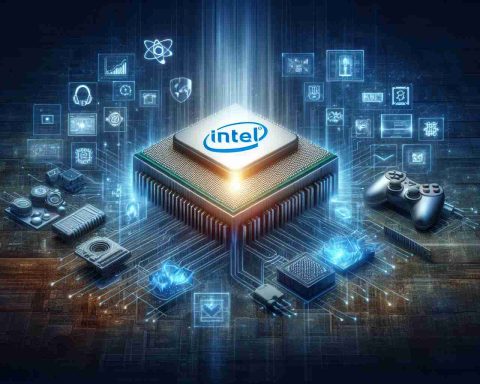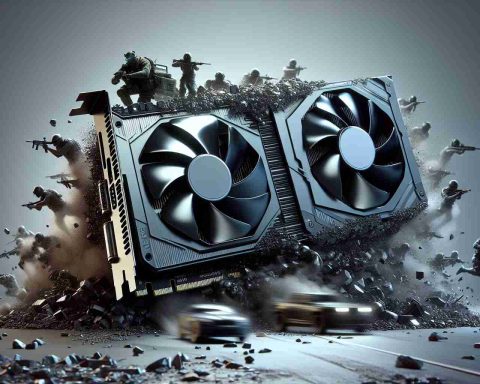OpenAI’s Ambitious Robot Plans Unveiled
Rumors are swirling about OpenAI’s potential venture into the humanoid robotics realm, according to a recent report. While details remain under wraps, OpenAI appears poised to expand its influence in this cutting-edge field.
Currently, many up-and-coming companies in humanoid robotics are concentrating on enhancing warehouse efficiency and aiding with household chores. OpenAI, with its strategic investments, is aligning itself with these industry goals. Earlier this year, they supported Figure AI Inc. with substantial funding. This startup has already integrated OpenAI’s AI models into its Figure 02 robot, designed for tasks like transporting materials in warehouse environments, showcased during a test at a BMW plant.
Beyond Figure AI, OpenAI has also backed 1X, a Norwegian competitor innovating a new humanoid robot, EVE. Notably, EVE distinguishes itself with its wheeled mobility. 1X is innovating further to build a more versatile, consumer-oriented model.
OpenAI may consider collaborating with these startups for faster development of a humanoid robot, leveraging existing designs and technologies. This approach might be bolstered by OpenAI’s notable $6.6 billion funding, potentially allowing for strategic acquisitions in the robotics space.
Historically, OpenAI has shown expertise in AI-driven robotics, having achieved notable milestones like training robotic arms to solve puzzles. Additionally, rumors suggest that OpenAI’s developing custom AI chips could play a crucial role in powering advanced robotics, tapping into collaborations with chip manufacturers Broadcom and TSMC for tailored hardware solutions.
As OpenAI potentially steps into this new territory, the tech industry keenly awaits further developments.
Will OpenAI Revolutionize Humanoid Robotics?
OpenAI’s rumored entry into the humanoid robotics field is creating a buzz, as industry watchers anticipate how its advancements might influence the sector. The organization’s potential move into robotics comes at a time when the industry is focusing on enhancing efficiency and functionality in both commercial and domestic arenas. This presents several exciting possibilities for the future of robotics and artificial intelligence.
Trends and Innovations in Humanoid Robotics
The current trends in humanoid robotics revolve around improving operational efficiency in industrial settings, such as warehouses, and developing robots capable of undertaking household tasks. OpenAI seems to be strategically investing in this growing market by funding promising startups, indicating a keen interest in nurturing innovation.
# AI Models in Robotics
One notable application of OpenAI’s expertise is the integration of their AI models into Figure AI Inc.’s Figure 02 robot, which excels in logistical tasks like material transportation in environments such as the BMW facilities. The aim is to streamline and automate processes that traditionally require human intervention, effectively improving productivity.
# Wheel Over Legs: The Case of EVE
Another innovation comes from 1X, a Norwegian startup supported by OpenAI, which has focused on developing EVE, a humanoid robot that uniquely utilizes wheels for movement. This design choice enhances mobility and expands its use cases, promising a new level of versatility in consumer-oriented robotics.
Pros and Cons of OpenAI’s Robotics Ventures
# Pros:
– Enhanced AI Integration: Leveraging OpenAI’s robust AI models could lead to significant advancements in robot cognition and task efficiency.
– Collaborations with Pioneers: Partnerships with startups like Figure AI and 1X expand OpenAI’s influence and potentially accelerate development timelines through shared expertise and resource pooling.
– Financial Backing: With an impressive funding pool of $6.6 billion, OpenAI is well-positioned to scout for strategic partnerships and acquisitions.
# Cons:
– Technical Challenges: Creating humanoid robots with advanced functionalities involves overcoming substantial engineering and computational hurdles.
– Market Competition: The robotics field is competitive, with several established and emerging players vying for dominance, which poses market entry challenges.
Security Aspects and Custom AI Chips
OpenAI’s rumored development of custom AI chips tailored for robotics could further bolster security and performance. These chips might be pivotal in powering more secure, efficient, and robust robotics systems. Collaborations with notable chipmakers like Broadcom and TSMC could ensure that these systems meet the rigorous demands of autonomous operations.
Sustainability and Predictions for the Future
While the push towards humanoid robotics promises efficiency gains, it also raises questions about sustainability. OpenAI’s approach may include creating energy-efficient designs that minimize environmental impact, an important consideration as technology companies strive to balance innovation with ecological responsibility.
Looking forward, the successful entry of OpenAI into the realm of robotics could set new industry standards and possibly shape the future trends of how AI and robotics evolve together. The tech world remains on the edge of their seats, eager for updates and announcements regarding OpenAI’s ambitious robotics projects.
For more insights into OpenAI’s advancements and potential future projects, visit the OpenAI website.



















